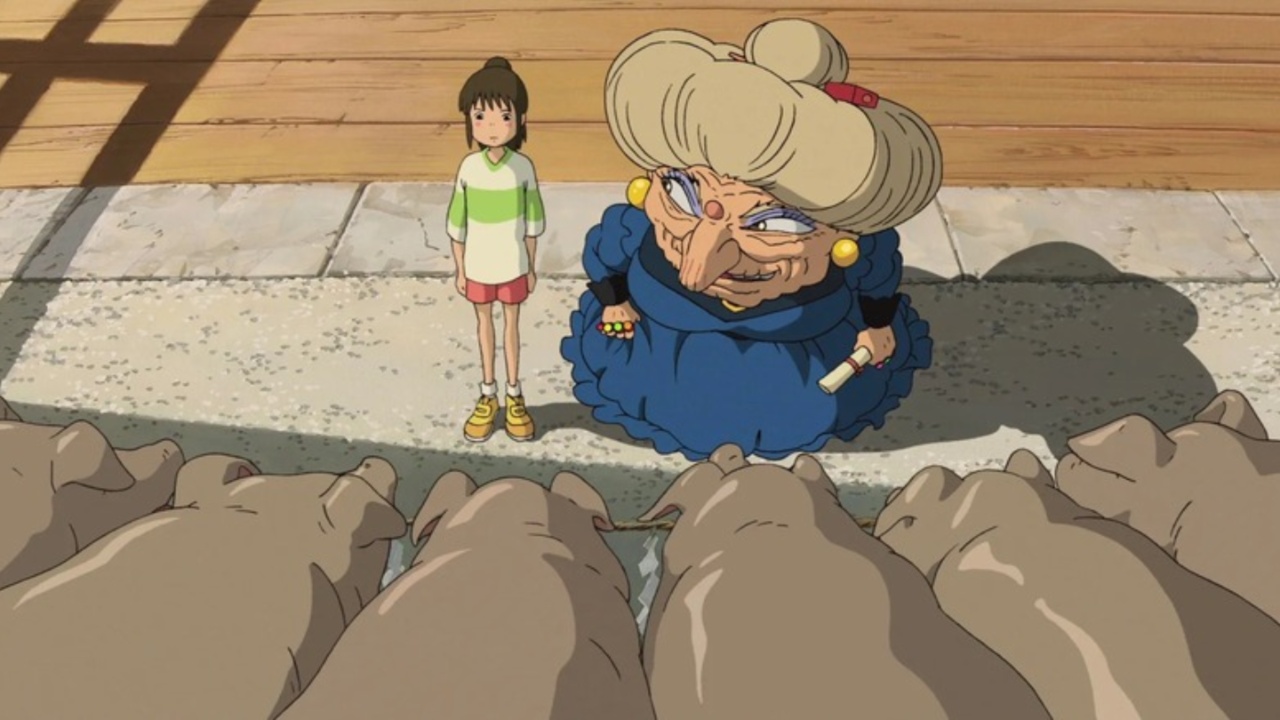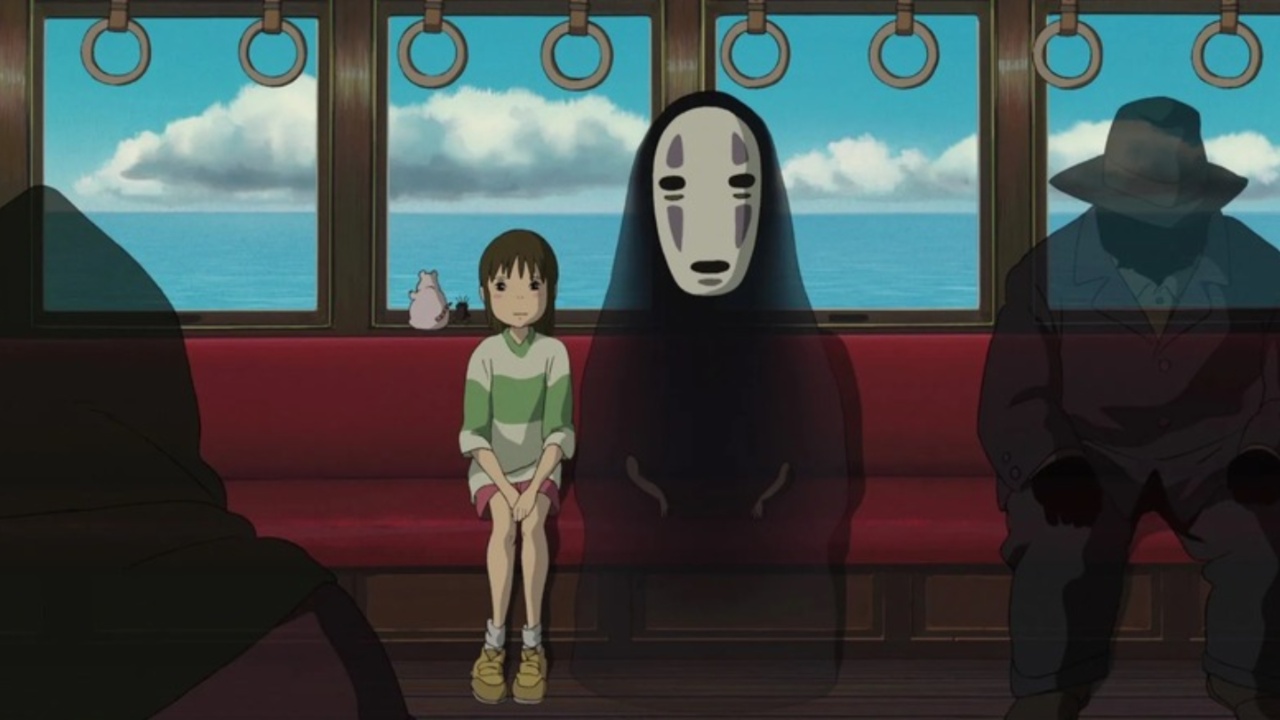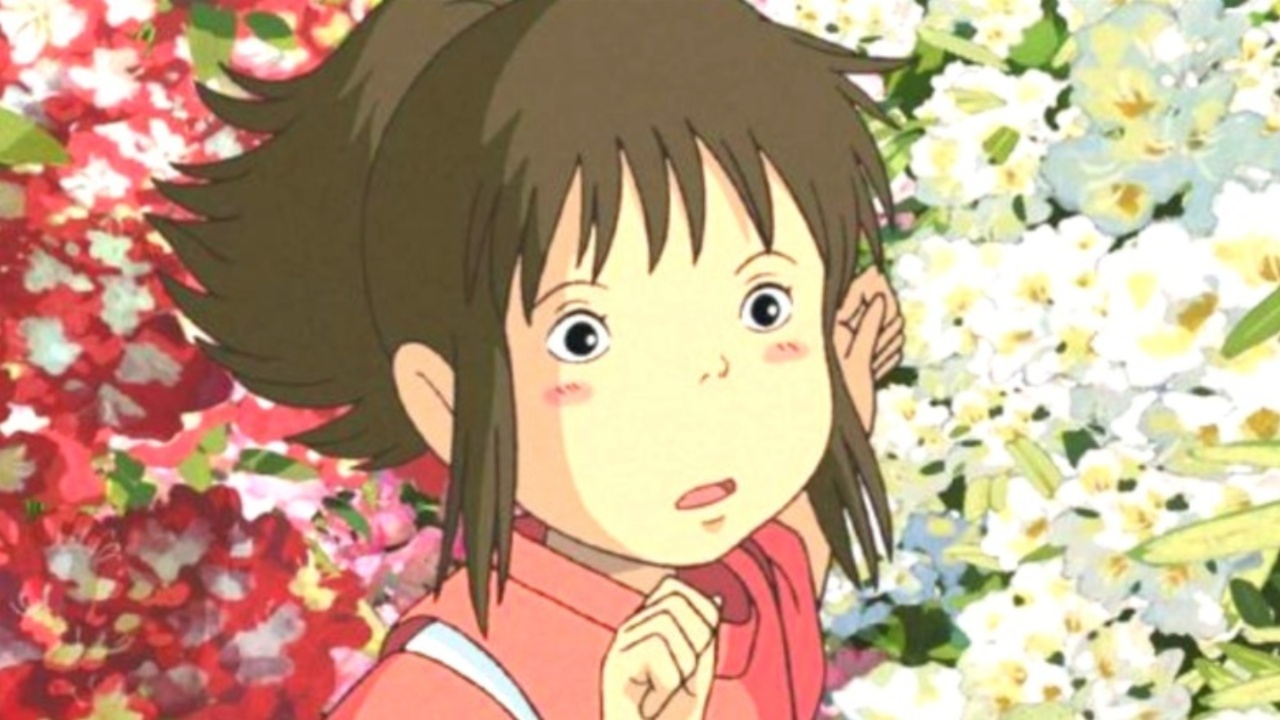Hayao Miyazaki’s Spirited Away tells the imaginative and bittersweet story of Chihiro, a ten-year-old girl who unintentionally crosses into the world of spirits while traveling with her parents. After her parents eat food meant for supernatural visitors, they transform into pigs, leaving Chihiro alone and frightened in a realm filled with Kami from Japanese folklore.
To survive and search for a way to rescue her parents, she begins working at a magical bathhouse operated by the intimidating witch Yubaba. Guided only by her own determination and the help of a mysterious boy named Haku, Chihiro embarks on a journey that tests her courage and reshapes her understanding of responsibility and identity.
Released in 2001 and honored with the Academy Award for Best Animated Feature, Spirited Away is widely regarded as one of Miyazaki’s greatest works. Chihiro’s development lies at the heart of the film’s emotional power. She begins as an insecure and hesitant child who is uneasy about change and resistant to new experiences. Through her encounters with bathhouse workers and fantastical spirits, she gradually learns empathy, initiative, and resilience.
Each creature she meets offers a lesson that contributes to her personal evolution, making her eventual moments of bravery feel natural and well-earned. This transformation allows viewers to see her as a relatable protagonist whose growth emerges from genuine struggle rather than convenience.

Chihiro’s Final Test and Self-Identity Secure Her Freedom from the Spirit World
As the story nears its conclusion, Chihiro visits Zeniba, the kindhearted twin sister of Yubaba, at Swamp Bottom. Although Chihiro is welcomed warmly, she remains distressed by her uncertainty about her parents’ fate. Haku soon arrives to escort her back to the bathhouse, where Yubaba awaits with a final challenge.
To win her freedom, Chihiro must identify which pigs in a large group are her parents. She confidently replies that none of them are, and her answer proves correct. Yubaba is forced to honor her promise, and Chihiro is allowed to return to the human world. Her parents reappear in their human forms without any memory of their ordeal, and the family walks back to their car as if no time has passed.
Identity is a central theme in Spirited Away, and it becomes a crucial part of Chihiro’s success. When Chihiro begins working at the bathhouse, Yubaba steals her name and replaces it with Sen.. Forgetting one’s true name leads to a loss of selfhood, which explains why Haku became trapped in Yubaba’s service for so long. Chihiro’s refusal to forget who she is allows her to resist that fate.
Her awareness of herself and her parents, even when forced into unfamiliar forms, symbolizes her growing sense of self-actualization. Her successful answer during the final test is not about clever deduction but about confidence in her own identity. This inner strength becomes the key that unlocks her return to the human world.

No Face and Haku Highlight Chihiro’s Growth, Compassion, and Emotional Maturity Journey
No Face, one of the most recognizable figures in the film, serves as a reflection of Chihiro’s internal anxieties. He begins as a lonely spirit without a clear identity and becomes corrupted when exposed to the excesses of the bathhouse. Chihiro’s kindness toward him is significant because No Face represents what she might become if she allowed fear or loneliness to overwhelm her.
Their quiet train ride together highlights their shared longing for connection and stability. By guiding No Face to Zeniba, who provides him a place where he can exist peacefully, Chihiro shows compassion and maturity. His story mirrors her own struggle to understand herself and reinforces the film’s exploration of belonging.
Chihiro’s bond with Haku reaches its emotional peak when she restores his forgotten identity. While riding on Haku’s dragon form during their return from Swamp Bottom, she remembers falling into a river as a young child and being saved by its spirit. The river’s name, the Kohaku River, is revealed to be Haku’s true name. By speaking it aloud, she frees him from Yubaba’s control. This moment completes an important narrative circle. Haku protected Chihiro at the beginning of the story, and now she frees him in return. Her ability to recall this memory demonstrates how far she has come in her understanding of herself and others.
Although the spirit world disappears once Chihiro crosses the riverbed, two clues suggest that her adventure was real. Zeniba’s bracelet remains on Chihiro’s wrist, and the family car is covered in dust and leaves, indicating that time has passed. Regardless of how the events are interpreted, the deeper meaning remains clear.
The journey symbolizes Chihiro’s transition from childhood uncertainty to emotional maturity. At the beginning of the film, she is reluctant to move to a new home, but by the end, she faces the future with confidence. When her mother asks if she is nervous, Chihiro replies that she can handle it. Her answer reveals the lasting impact of her experiences and confirms that she has grown into someone who is ready to face change with courage.



